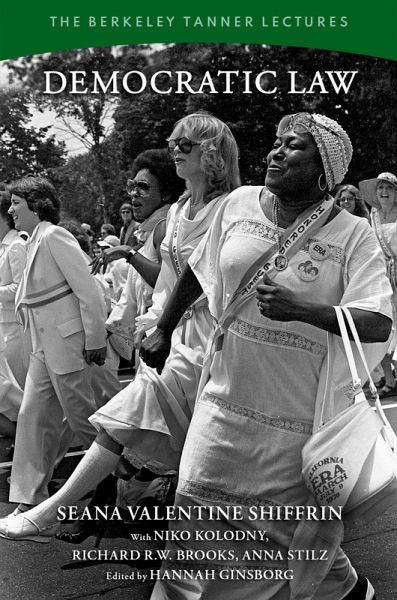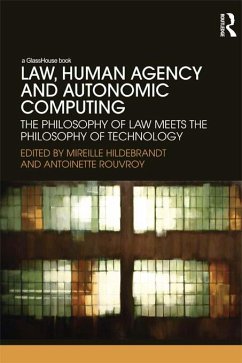
Democratic Law (eBook, ePUB)

PAYBACK Punkte
4 °P sammeln!
In this book, based on her 2017 Berkeley Tanner Lectures, Seana Valentine Shiffrin offers an original, deontological account of democracy, law, and their interrelation. Her central thesis is that democracy and democratic law have intrinsically valuable, interconnected communicative functions. Democracy and democratic law together allow us to fulfill our fundamental duties to convey to each another messages of equal respect by fashioning the sorts of public joint commitments to act that a sincere message of equal respect requires. Law and democracy are essential to each other: the aspirations o...
In this book, based on her 2017 Berkeley Tanner Lectures, Seana Valentine Shiffrin offers an original, deontological account of democracy, law, and their interrelation. Her central thesis is that democracy and democratic law have intrinsically valuable, interconnected communicative functions. Democracy and democratic law together allow us to fulfill our fundamental duties to convey to each another messages of equal respect by fashioning the sorts of public joint commitments to act that a sincere message of equal respect requires. Law and democracy are essential to each other: the aspirations of democracy cannot be realized except through a legal system, and, conversely, law can fulfill its primary function only in a democratic context. After defending these theses, Shiffrin explores two doctrinal examples to illustrate how a communicative conception of democratic law would yield concrete implications. First, articulating the special democratic character of judicially articulated common law, she resists instrumental, outcome-oriented conceptions of law and defends the essential importance of the common law duty of good faith in contracts. Second, appealing to the need for law to articulate a coherent set of moral commitments, she criticizes the U.S. Supreme Court's approach to constitutional balancing. In a set of commentaries, Niko Kolodny, Richard Brooks, and Anna Stilz offer illuminating and sometimes provocative discussion of both the philosophical and the legal aspects of Shiffrin's discussion. Shiffrin's responses expand upon themes concerning legal compliance, commitments, communication, dissent, political participation, and the permissible range of state interests.
Dieser Download kann aus rechtlichen Gründen nur mit Rechnungsadresse in A, B, BG, CY, CZ, D, DK, EW, E, FIN, F, GR, HR, H, IRL, I, LT, L, LR, M, NL, PL, P, R, S, SLO, SK ausgeliefert werden.













